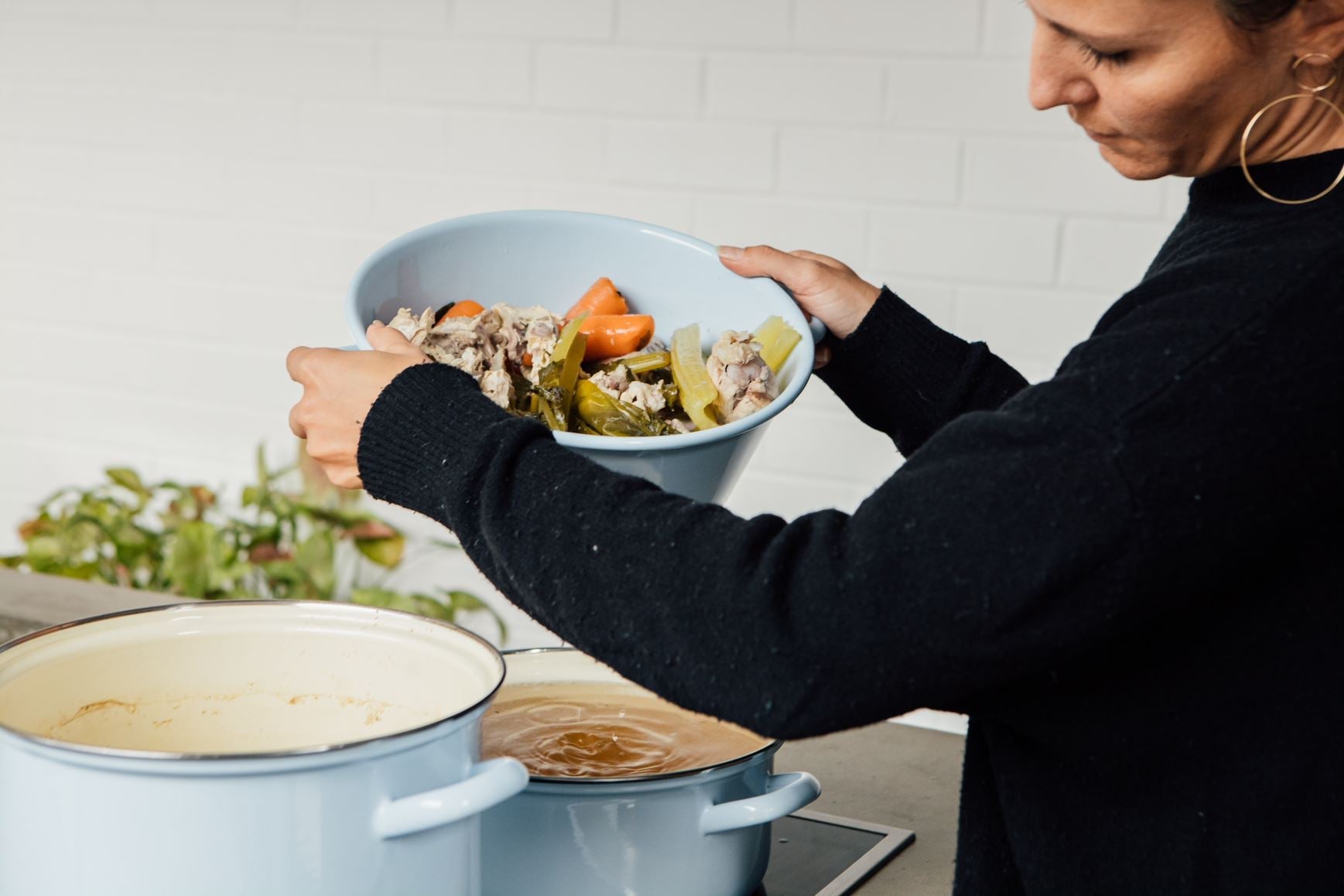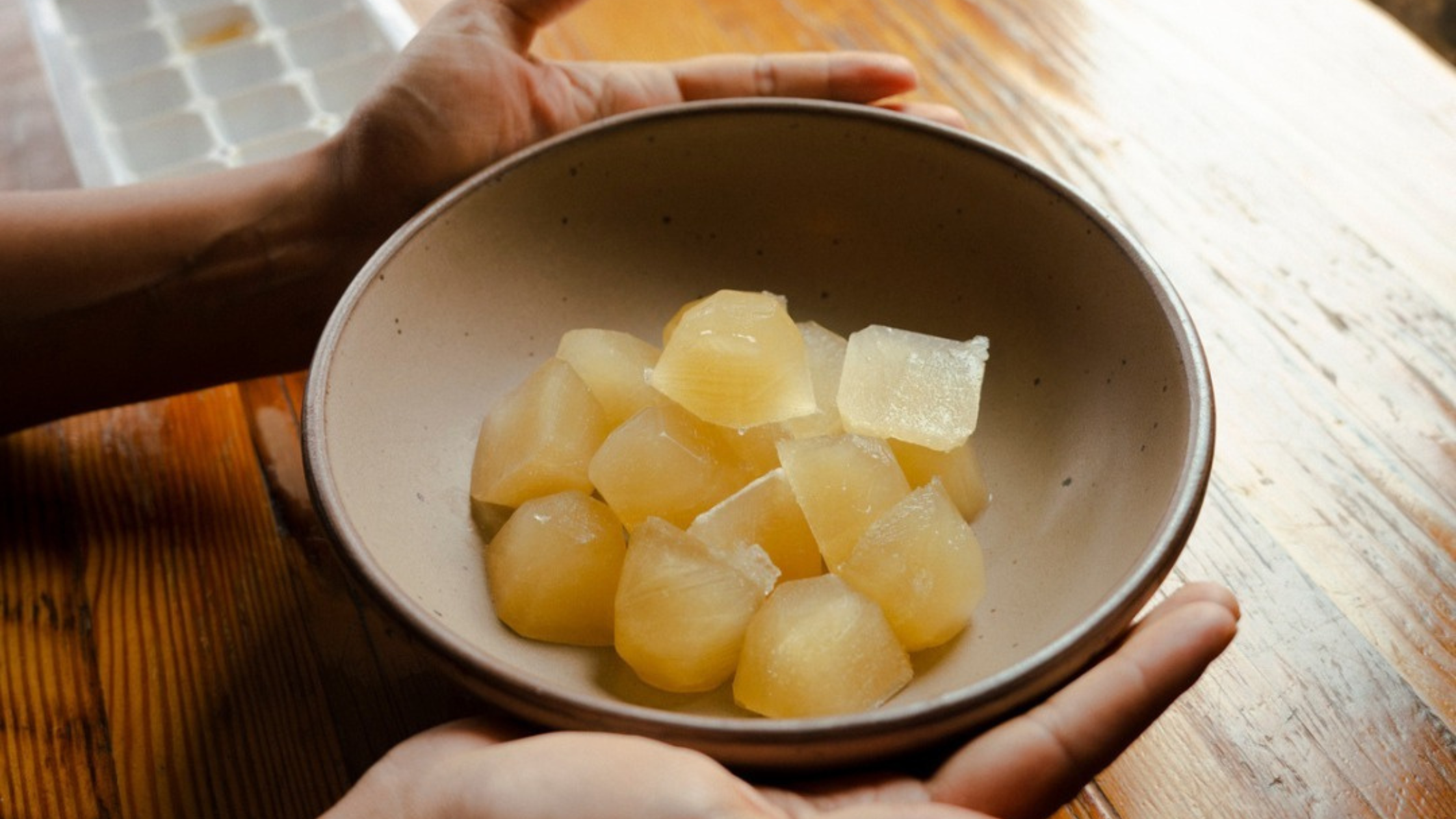Smart Introduction Guide for Bone Broth for Infants
Wiki Article
The Importance of Healthy And Balanced Food: Why Bone Broth Is a Great Selection for Infants
When it concerns your infant's nutrition, every choice matters. Bone broth stands apart as a nutrient-dense alternative, supplying important minerals and vitamins that sustain growth and development. Its abundant structure not only help food digestion however additionally increases the immune system. Understanding exactly how to integrate this flexible food right into your infant's diet regimen can establish the phase for healthy consuming behaviors. So, what are the very best means to present bone broth to your youngster?Nutritional Advantages of Bone Broth for Newborns
When you introduce bone broth to your infant's diet regimen, you're supplying a nutrient-dense food that offers countless health advantages. Packed with essential minerals and vitamins, bone broth contains calcium, magnesium, and phosphorus, which sustain your baby's growing bones. It's likewise abundant in collagen, helping in the growth of healthy skin, joints, and connective cells.In addition, bone broth is an exceptional source of amino acids like glycine and proline, which play a considerable function in total development and muscle growth. These nutrients help advertise a strong body immune system, setting a solid structure for your infant's health.
In addition, bone broth is simple to absorb, making it a mild alternative for your child. By integrating this wholesome food into their dishes, you're guaranteeing they obtain essential nutrients required for their general well-being. So, go in advance and make bone broth a staple in your baby's diet regimen!
Exactly How Bone Broth Supports Digestion
Bone broth is loaded with vital nutrients that can actually benefit your baby's food digestion. It advertises digestive tract health and aids with nutrient absorption, making it an excellent enhancement to their diet plan. By incorporating bone broth, you're setting the stage for a much healthier gastrointestinal system.Nutrient-Rich Composition
One of one of the most nutrient-rich foods you can introduce to your baby's diet regimen is bone broth, which is packed with important minerals and amino acids that sustain healthy and balanced digestion. Rich in collagen, bone broth helps enhance your infant's gut lining, making it easier for their body to take in nutrients. It offers jelly, which helps in damaging down proteins, promoting smoother digestion. Additionally, the broth has necessary electrolytes like potassium and magnesium, ensuring your baby stays hydrated and balanced. The amino acids, such as glycine and proline, play a crucial function in repairing tissues and supporting overall wellness (bone broth for infants). By integrating bone broth into your baby's dishes, you're offering them a wholesome food that supports their digestion system efficiently.Promotes Digestive Tract Health
As you introduce bone broth right into your infant's diet regimen, you'll discover it not just nourishes yet also promotes digestive tract wellness effectively. Rich in jelly, bone broth helps soothe the digestive system, lowering swelling and supporting a healthy digestive tract lining. This is vital for babies, as a balanced digestive tract setting lays the structure for general health and wellness. Additionally, the amino acids found in bone broth, such as glycine, aid in digestion and can aid protect against typical tummy troubles. By including this beneficial liquid, you're providing your infant with necessary nutrients that contribute to a growing digestive system. Ultimately, a healthy and balanced digestive tract can affect every little thing from resistance to mood, making bone broth an outstanding option for your kid.Aids Nutrient Absorption
Presenting bone broth not just supports gut health but likewise plays a significant function in assisting nutrition absorption. When you give your infant bone broth, you're providing a rich resource of minerals and amino acids that boost their gastrointestinal procedures. The gelatin in bone broth aids to calm the digestive tract lining, enhancing its ability to absorb essential nutrients. This suggests that vital minerals and vitamins from other foods are a lot more successfully made use of by your child's expanding body. Furthermore, bone broth has collagen, which supports the advancement of healthy tissues and organs. By integrating this nutrient-dense fluid right into your baby's diet regimen, you're guaranteeing they obtain the optimum take advantage of their dishes, advertising total health and well-being.Strengthening the Body Immune System With Bone Broth

Furthermore, bone broth has glycosaminoglycans, like glucosamine, that can improve the immune system's capability to operate effectively. This means it not only aids in building defenses but additionally help in recovery from diseases. By incorporating bone broth right into your baby's diet, you're supplying an all-natural resource of sustenance that advertises wellness. So, consider making bone broth a staple in your infant's meals, as it can play an important function in their immune wellness and growth.
Easy Ways to Include Bone Broth Into Child's Diet regimen
Including bone broth into your baby's diet plan can be basic and gratifying. You can also use bone broth as a base for soups or stews that you prepare for the household, ensuring your child obtains a taste of delicious, healthy and balanced meals.Another choice is to offer bone broth by itself. Warm it up and offer it in a sippy cup or tiny dish-- it's an excellent means to present new tastes. If your baby appreciates grains, consider cooking rice or quinoa in bone broth rather than water for added nourishment. Lastly, you can ice up bone broth in ice trays, making it easy to add a dice to various dishes whenever you desire. These techniques will aid your baby enjoy the advantages of bone broth easily!
Homemade vs. Store-Bought Bone Broth: What to Choose
Which is far better for your child: homemade or store-bought bone broth? Homemade bone broth uses you full control over the active ingredients.On the other hand, store-bought options are convenient and conserve you time. However, they often have chemicals and might not match the deepness of flavor and nourishment you get from homemade broth. If you go with store-bought, search for brands that are organic and devoid of ingredients.
Eventually, if you have the time and sources, homemade bone broth is the exceptional option for your child's health. If you're brief on time, select a high quality store-bought alternative as a back-up.
Age-Appropriate Bone Broth Serving Tips
As your baby grows, it is essential to customize bone broth offering suggestions to their developing stage. For infants around six months, begin with a couple of spoonfuls of diluted bone broth. Mix it with water or breast milk to make it much easier for them to absorb. As they come to be familiar with flavors, you can slowly present thicker broth by lowering the dilution.When your infant reaches around 8 months, you can offer it cozy in a sippy cup or add it to soft foods like purees. By the time your child is around a years of age, consider offering bone broth as a standalone beverage or mixing it into soups and stews. Simply make sure to keep the broth low in sodium. Always monitor for any responses, and consult your pediatrician if you have issues concerning presenting brand-new foods. Enjoy this healthy addition to your baby's diet plan!
Other Healthy Foods to Combine With Bone Broth for Infants
When you're looking to improve bone broth for infants the nutritional value of bone broth for your baby, consider coupling it with nutrient-dense veggies like carrots and spinach. Entire grain choices, such as quinoa or wild rice, can additionally add structure and fiber. Furthermore, integrating healthy protein resources like shredded chicken or lentils will complete the dish perfectly.
Nutrient-Dense Veggies
Nutrient-dense veggies are a superb addition to bone broth for babies, boosting both flavor and nourishment. Including veggies like carrots, spinach, and pleasant potatoes can boost the vitamin and mineral content of your broth. Carrots supply beta-carotene for healthy and balanced vision, while spinach is packed with iron and calcium, necessary for development. Pleasant potatoes include all-natural sweet taste and are abundant in fiber, assisting digestion.You can quickly mix these veggies right into the broth or serve them as soft, prepared items alongside it. This not just presents new tastes however likewise encourages your little one to delight in a range of nutrients. By coupling nutrient-dense vegetables with bone broth, you're laying the foundation for a healthy diet plan right from the beginning.
Entire Grain Options

Healthy Protein Resources
Bone broth pairs wonderfully with numerous healthy and balanced protein sources, further boosting your baby's diet plan. Eggs, when presented securely, are another great choice; they're versatile and loaded with nutrients. By integrating these healthy protein sources with bone broth, you're offering your baby a well balanced, nourishing meal that sustains their development and development.Frequently Asked Concerns
Can Bone Broth Cause Allergies in Infants?
Yes, bone broth can create allergies in babies, especially if they're sensitive to particular active ingredients. Constantly consult your pediatrician before presenting brand-new foods and monitor for any type of indications of allergic reactions after feeding.How Should Bone Broth Be Kept for Babies?
You must save bone broth in closed containers, either in the refrigerator for approximately a week or in the fridge freezer for approximately 3 months. bone broth for pregnancy. Constantly thaw it correctly prior to offering to your infantIs It Safe to Give Bone Broth to Premature Babies?
It's necessary to consult your pediatrician prior to introducing bone broth to premature infants. They'll analyze your infant's specific health needs and ensure it's risk-free, considering their one-of-a-kind dietary needs and developing stage. Always focus on experienced advice.What Are the Indicators of Intolerance to Bone Broth in Babies?
When introducing bone broth, look for signs like fussiness, rash, looseness of the bowels, or vomiting. If your baby shows any of these responses, it's best to speak with a pediatrician before remaining to supply it.Can Bone Broth Be Utilized as a Dish Replacement for Newborns?
No, you shouldn't utilize bone broth as a meal substitute for infants. It does not have vital nutrients required for their development. Rather, integrate it right into their diet plan along with balanced dishes for included nutrients and flavor.Report this wiki page